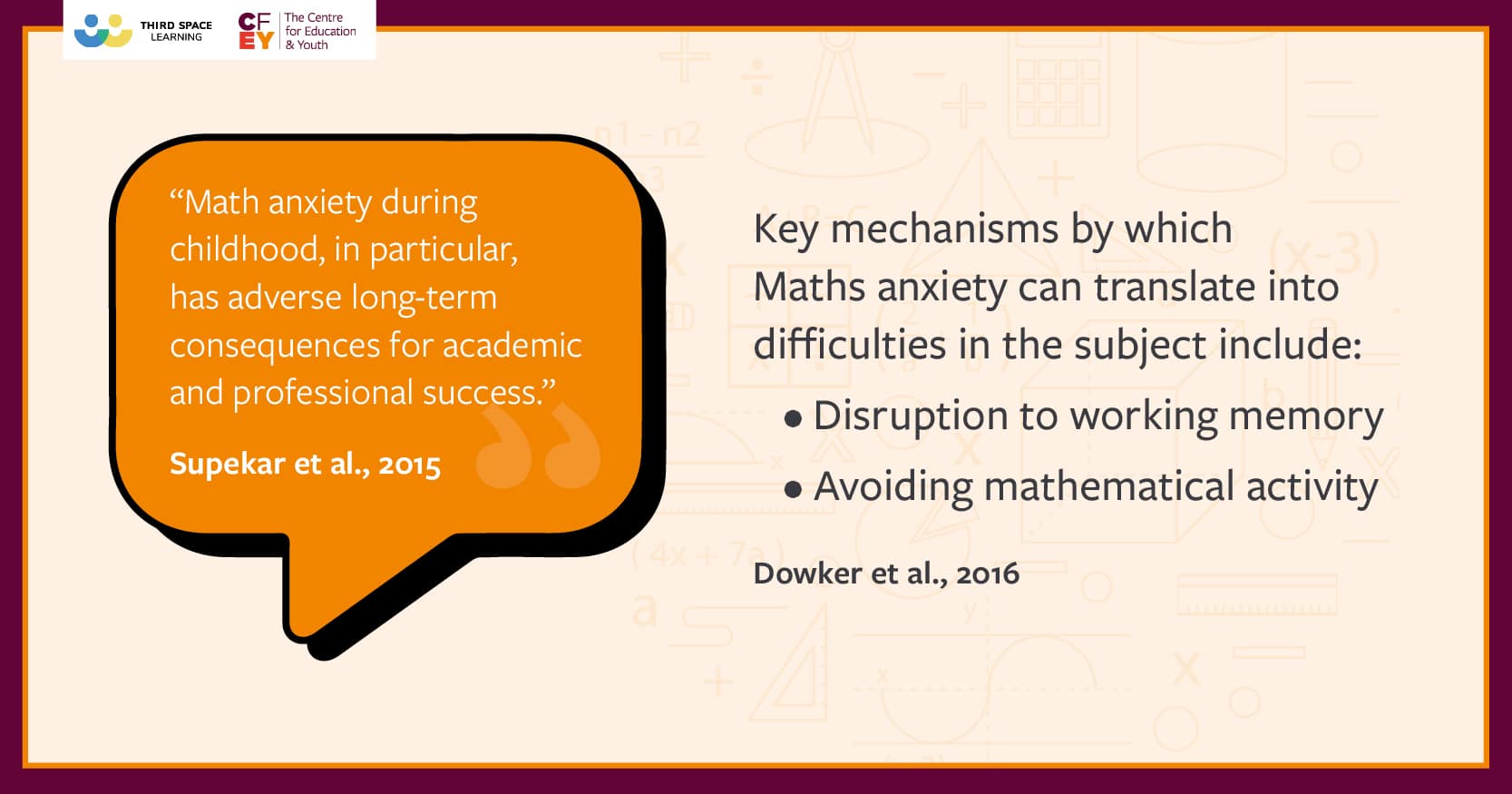Keeping the door open in Maths: Could tutoring in primary school provide the space pupils need?
by Loic Menzies
20th September 2021
The first door that closed to me because of my lack of maths skills shut at A level.
I had realised that I was at sea in my chemistry lessons, and, although in retrospect I should have done something about catching up, I decided to drop the subject. The chemistry lab door turned out to be the first of several doors to close because of gaps in my maths skills.
Today The Centre for Education and Youth and Third Space Learning are publishing a new report entitled “A Space for Maths”. Researching it proved to be a revealing process for me, explaining many of the difficulties I’ve grappled with over the years.
Strikingly, I discovered that I was not unusual in that my battles with maths started early in Key Stage 2. As I pawed through myriad studies from across the world as part of the literature review, I recalled my own memories of being confused by fractions in Year 4 – only to discover that early difficulties in this area (and at this age) have in fact been shown to be highly predictive of future struggles.
The question that underpins our new report is therefore: “what could help pupils who start to doubt their potential – even before they leave primary school, to achieve in maths”.
 Learning loss in maths is deeply worrying and risks having an extremely damaging impact on disadvantaged pupils, given the strong link between early and later achievement in the subject Click To Tweet
Learning loss in maths is deeply worrying and risks having an extremely damaging impact on disadvantaged pupils, given the strong link between early and later achievement in the subject Click To Tweet
Third Space Learning, who commissioned this report, believe that tutoring could help, and an increasing number of parents and teachers agree with them.
One in ten parents have considered getting their child a tutor in response to the pandemic according to Parent Ping and I can see why; returning from secondary school one evening after yet another maths lesson spent clutching my head in frustration, my parents decided to call up a friend who was a retired maths teacher. They asked her to spend an hour with me at the weekend explaining what I’d failed to grasp in class. Having that one-to-one time was deeply reassuring, as if a tangled ball of misconceptions was finally unwrapping. But unfortunately, not everyone has parents able to do what mine did that week. Indeed, access to one-to-one support has historically been deeply inequitable.
I recall how a single one-to-one maths session led me to feel like a tangled ball of misconceptions was finally unwrapping - says @LoicMnzs in A Space for Maths Click To TweetThe difficulties with maths learning that I’ve described above are perennial ones and will be familiar to many. However, what has changed since 2020 is that most pupils have now missed out on many months of schooling, and unfortunately, data suggests that this has had a devastating impact on many pupils’ learning. It also seems that this situation is worse in Maths than in English and that disadvantaged pupils are the ones who have been worst impacted.
Our new report is therefore intended to gauge the escale of learning loss in maths; to show why it matters; and to ask what contribution tutoring might make to the national response.
We argue that learning loss in maths is indeed deeply worrying and that it risks having an extremely damaging impact on disadvantaged pupils. Luckily, tutoring offers considerable promise as a means of helping pupils to bounce back. We acknowledge that there are big challenges involved in developing a successful solution, not least the scale of need. However, by drawing up a specification for an effective solution and comparing Third Space Learning’s current model and track record to this, we find that there is potential for tutoring to help.
Ultimately, I hope that the lessons in this report will ensure that doors do not keep closing for the many pupils who find themselves struggling in maths.
What could help pupils who start to doubt their potential to achieve in maths? 'A Space for Maths' sets out to answer this crucial question. Click To Tweet

Comments